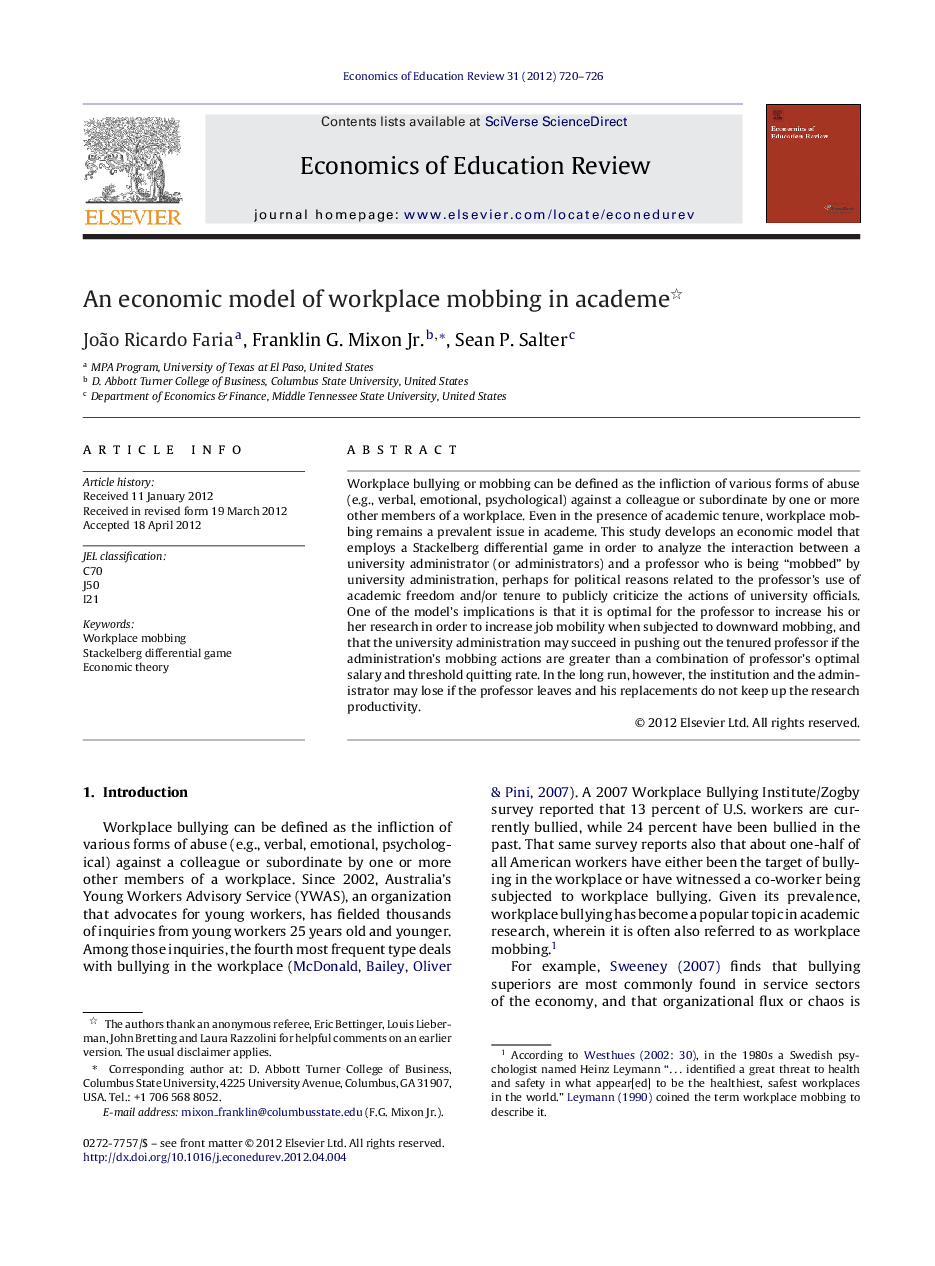| Article ID | Journal | Published Year | Pages | File Type |
|---|---|---|---|---|
| 354439 | Economics of Education Review | 2012 | 7 Pages |
Workplace bullying or mobbing can be defined as the infliction of various forms of abuse (e.g., verbal, emotional, psychological) against a colleague or subordinate by one or more other members of a workplace. Even in the presence of academic tenure, workplace mobbing remains a prevalent issue in academe. This study develops an economic model that employs a Stackelberg differential game in order to analyze the interaction between a university administrator (or administrators) and a professor who is being “mobbed” by university administration, perhaps for political reasons related to the professor's use of academic freedom and/or tenure to publicly criticize the actions of university officials. One of the model's implications is that it is optimal for the professor to increase his or her research in order to increase job mobility when subjected to downward mobbing, and that the university administration may succeed in pushing out the tenured professor if the administration's mobbing actions are greater than a combination of professor's optimal salary and threshold quitting rate. In the long run, however, the institution and the administrator may lose if the professor leaves and his replacements do not keep up the research productivity.
► Workplace mobbing is defined as infliction of abuse against a colleague by others. ► Even in the presence of academic tenure, workplace mobbing is an issue in academe. ► This study develops a Stackelberg game to analyze workplace mobbing in academe. ► One of the implications is that a tenured faculty can be pushed out of a university. ► Forcing a tenured faculty out partly depends on the optimal salary and quitting rate.
